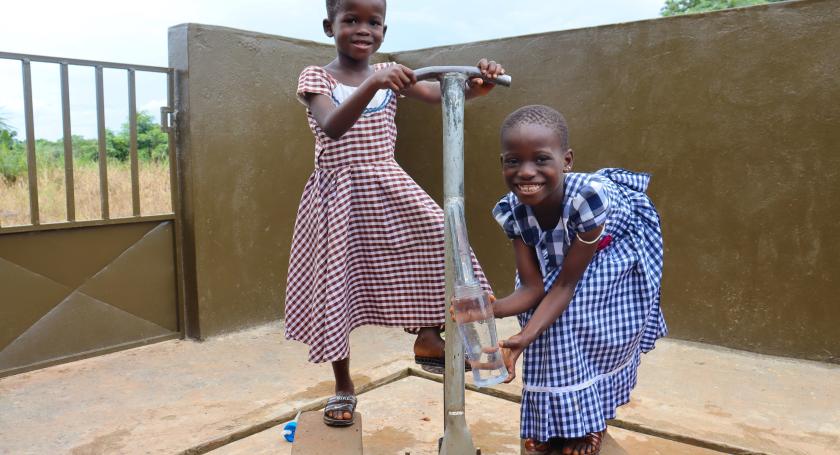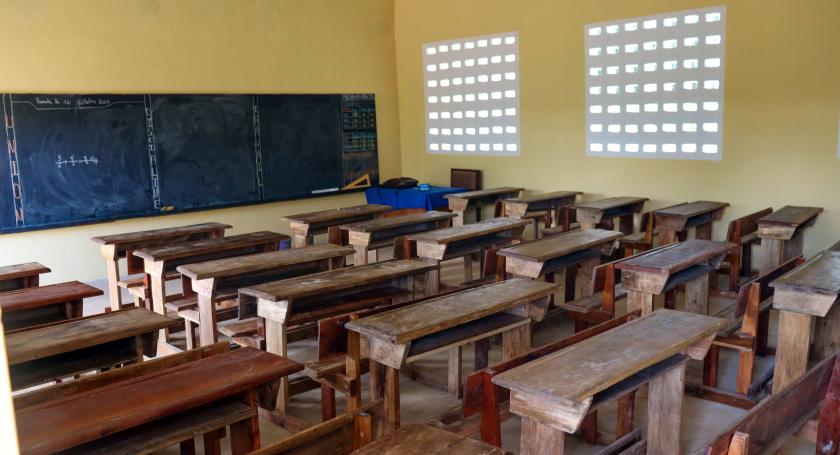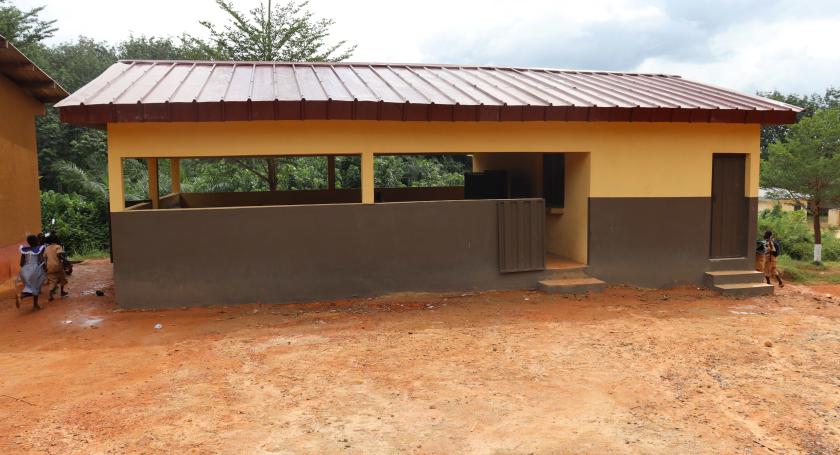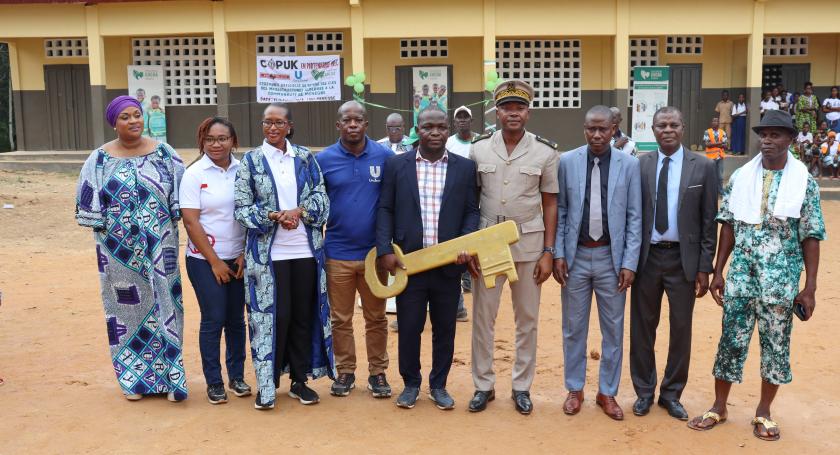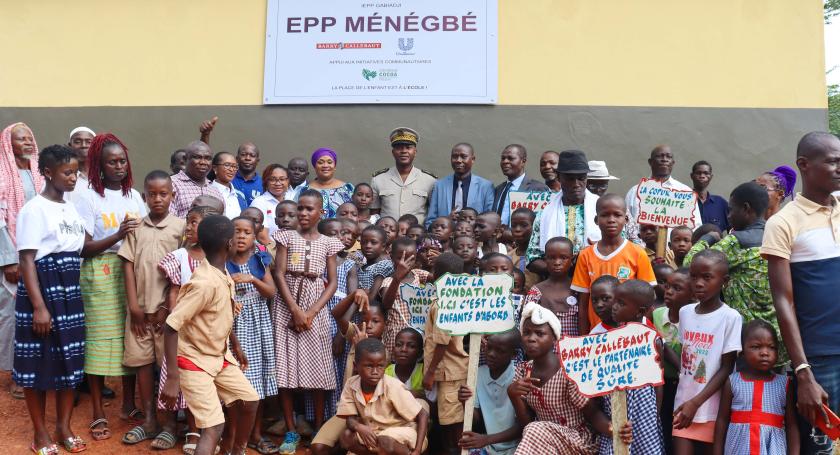Built on a one-hectare site, the Ménégbé school is now the pride of the community. It has replaced the makeshift classrooms built of wood and covered with tarpaulins that were used previously. The new school consists of six classrooms, a principal's office, a kindergarten classroom, a canteen and two latrine blocks with three cubicles (for boys and girls and administrative staff). A water pump has also been installed.
"When we opened the school doors, we couldn't contain the children’s enthusiasm, they were so happy to have a new school," the school's director, Kambou Hollo, told us happily. He has been working at the school since 2006 and tells us about the challenges children and teachers used to face: "During the rainy season, the tarpaulins were blown up by the wind and we were forced to leave the makeshift classrooms to take refuge. Not to mention the reptiles that we would have to kill," he added. Another challenge faced was the double shift imposed on students due to the lack of space and amenities: "Out of the 5 days, students could attend only two or three days of lessons, meaning they couldn’t finish the school program," he added. Today, this will no longer be the case.
Parents like Fanny Nakalidja, a care assistant in Ménégbé and mother of a 9-year-old child enrolled at the EPP Ménégbé expressed their joy: "We were struggling. One group of students would go in the morning and another group would go in the evening. Today, this will change because we have new classrooms." In her view, parents will no longer be worried whenever there is bad weather because “we know that children are protected." Parents are also reassured knowing that "from now on, children will no longer go into people's yards to ask for water to drink."
Koffi N'guessan Ines, a 12-year-old CM2 student, still remembers an incident that marked her: "One day, my belongings were soaked by the rain, in particular my exercise book. My father reprimanded me. I felt bad because it wasn't my fault." As a result, her parents had to buy a new book for her. Today, she tells us that she is happy to have a new school and describes the feelings shared by her friends as soon as the classes opened: "The day they opened the class, we jumped for joy, the blackboard is pretty. I like the painted walls, the closets in the back and the toilets are clean," she said.
Othniel Sanou, an 11-year-old student in CM2, and his friends were often exposed to danger, especially when they went to relieve themselves in the bush: "In the old school, there were snakes every day in class or in places where we went to urinate. When the wind blew hard, we couldn’t attend class and when it rained, we had to take refuge at EPP Ménégbé 1. What I like about the new school is the blackboard. I've seen the toilets too, they're pretty and even tiled," he said.
Located 41 km from San-Pedro, Ménégbé officially received the keys to its new school on October 17 in the presence of the Sub-Prefect of Gabiadji, N'golo Fatogoma, and several representatives of the national education board and the jubilant population. This achievement was made possible thanks to the support of Barry Callebaut and the Kpatawéré United Planters' Cooperative (Copuk). To this end, the Sub-Prefect of Gabiadji thanked ICI and the partners "for the support in education"."ICI has done its part, it's up to you to do yours by sending your children to school (...) Don't disappoint the partners who have made efforts to build this infrastructure," he told the community that had come out in large numbers. For her part, Euphrasie Aka, ICI’s West and Central Africa Director, recalled that these "infrastructures built with partners demonstrate the desire to further protect children from dangerous work while allowing you to boost their own social development".
As part of the partnership with Barry Callebaut, four other schools with three classrooms plus a principal's office, a kindergarten classroom with a canteen and two three-cubicle latrine blocks have been built in the communities of Pk12 in Sassandra, Bohoussoukro in the Sub-Prefecture of Gabiadji, and in Djèkro, in the Sub-Prefecture of Oupoyo. In Brazzaville, in the sub-prefecture of Gabiadji, two three-cubicle latrine blocks have been rehabilitated in addition to the construction of the school and the school canteen.

